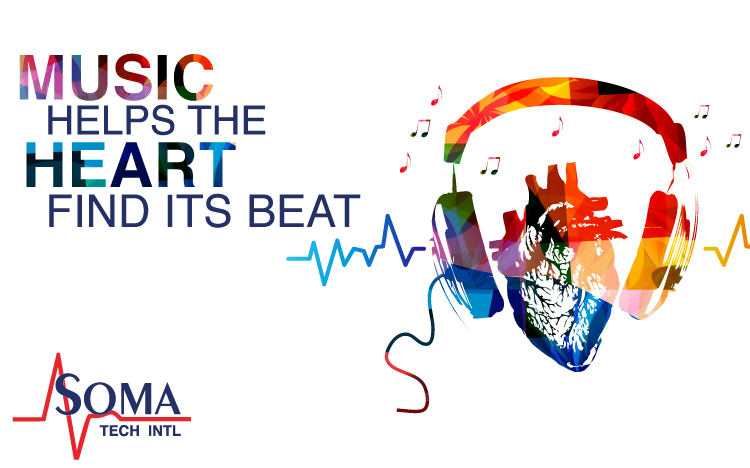Music Helps The Heart Find Its Beat
November 13, 2020
MUSIC VS HEART RATE
Whether you prefer Hector Berlioz’s symphonies or the Beatles’ “Sgt. Pepper’s Lonely Hearts Club Band,” one thing is certain: music and heart rates go hand in hand. You might not realize that music engages not only your auditory system, your brain responsible for movement, language, attention, memory, and emotion but your circulatory system as well.
DOES MUSIC EFFECT YOUR HEART RATE?
Music is a combination of frequency, beat, density, tone, rhythm, repetition, loudness, and lyrics. Cardiovascular autonomic function syncs with different musical rhythms and modulates the cardiovascular system. When we are exposed to slow beat music the parasympathetic nervous system is stimulated which in turn decreases heart rate. In contrast, fast-beat music triggers stimulation that increases the heart rate.
Published by the European Society of Cardiology (ESC), the research reviewed existing evidence related to music and cardiovascular health. As researchers explain, music can have a powerful impact on emotions and mood. Depending on the type of song, music can help energize or calm you, or even provoke memories from the past. Studies suggest that compared to silence, music tends to increase heart rate and speed up breathing. Faster music also speeds up heart rate and breathing more than slower music. One study found that unpleasant music is associated with a decrease in heart rate compared to pleasant music.
HOW DO DIFFERENT TYPES OF MUSIC AFFECT YOUR HEART RATE?
During a case study that involved 24 young adults, Professor of Internal Medicine, Luciano Bernardi evaluated the effects of music. Particularly evaluating the effect of vocals (Puccini “Turandot”), orchestra (Beethoven’s “Ninth Symphony”) and progressive crescendos (Bach’s Cantata BWV 169) had on heart rate (HR), respiratory rate (RR), blood pressure (BP) and middle cerebral artery flow. The study indicates that specific musical auditory stimulation may synchronize intrinsic cardiovascular regularity, thereby modulating cardiovascular physiology.
MUSIC AND BLOOD PRESSURE
Music may also improve the health of patients living with heart disease. Past studies have found that not only can music reduce pain and anxiety, but it may also help lower blood pressure. Since depression is common among patients with heart disease, it’s possible that music could help relieve symptoms and improve overall mood.
MUSIC-EVOKED EMOTIONS
The European Society of Cardiology also suggests the effects of music-evoked emotions on regional activity of the heart, as reflected in electrocardiogram amplitude patterns. In patients with heart disease (similar to other patient groups), music can reduce pain and anxiety, associated with lower heart rate (HR) and lower blood pressure (BP).
POSITIVE EFFECT OF A PIECE OF MUSIC
Interesting research objectives include studies of the question of which musical genres or even which concrete piece of music has optimal characteristics in terms of a relaxing effect, also with a view to long-term effects. The following factors seem to be relevant for the positive effect of a piece of music:
- A high degree of periodicity
- A catchy melody line
- A key that is experienced as pleasant
- Skillful composition
- Few changes in volume or rhythm
- Harmony sequences that are not rousing
- The absence of sung words
FINAL THOUGHT
However, as medical researchers explain, the effects of music on the heart are minor. Compared to well-established factors that impact heart health—like diet and exercise—it’s likely that music doesn’t have a major impact. Still, we would like to encourage future research on the issue. If music can improve mood or heart function, it may offer yet another way for patients to improve both mental and physical health. Until then, continue to let your heart dance to its preferred tune.
Explore Other Blog Items By Category
Recent Posts


Surgical Microscope Rentals


2 comments